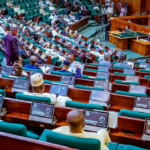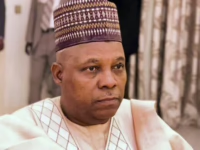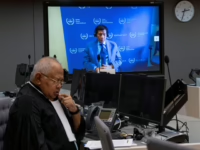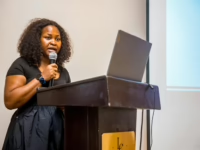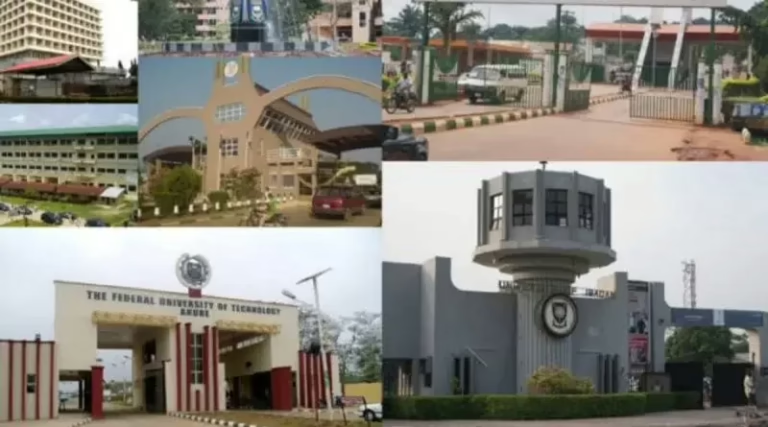Recently, the Academic Staff Union of Universities (ASUU) raised alarm over what it termed political meddling in the appointment of vice-chancellors, spotlighting the contentious promotion process of the Acting Vice Chancellor at Alvan Ikoku University of Education, which was riddled with inconsistencies.
Similarly, the Senior Staff Association of Nigerian Universities (SSANU), during a gathering in Otuoke, Bayelsa, voiced deep concerns about the governance of Nigerian universities. SSANU leaders lamented how the selection of vice chancellors in public universities has been reduced to mere “constituency projects,” undermining the integrity of the process.
These apprehensions are far from exaggerated; they stem from genuine worries about the current state of public universities. Increasingly, the appointment of university leaders has devolved into a political patronage system where allegiance overshadows merit. This trend erodes the core values of universities-independent thinking and meritocracy-at their foundation.
Earlier this year, a scandal emerged revealing that some lawmakers allegedly demanded “appreciation fees” from vice chancellors before approving their institutions’ budgets. Universities, already struggling financially, were forced to pay substantial sums to secure budget approvals from the National Assembly. This practice sends a troubling message: the survival of public universities hinges not on transparency, efficiency, or accountability, but on the ability to appease influential figures. Such corruption shatters the ideal of universities as bastions of integrity.
The heavy reliance of public universities on government funding renders them vulnerable to political fluctuations and economic downturns. This instability starves essential maintenance, teaching, and research budgets, making it difficult to retain and reward skilled academics. Consequently, university administrators are often forced into reactive, short-term decisions that undermine long-term institutional goals and academic excellence. Because funding is tied to shifting policy priorities, investments in laboratories, libraries, and staff development are frequently delayed or abandoned. The immediate victims of this instability are the students, who bear the brunt of deteriorating educational quality. The recently introduced Nigerian Education Loan Fund (NELFUND), designed to ease tuition costs, has been plagued by issues such as double billing, delayed payments, and collusion between banks and institutions, turning a hopeful initiative into a bureaucratic nightmare. For many young Nigerians from low-income families, this represents a daily disappointment that calls for urgent systemic reform.
Compounding these challenges is the mismanagement of limited resources, whether allocated by the government or generated internally by universities. For example, a visitation panel at the Federal University Oye-Ekiti (FUOYE) uncovered widespread mismanagement, including the suspension of lecturers without due process, appointment of unqualified personnel to critical roles, neglected audits, and financial irregularities. These findings are not isolated but indicative of a broader culture of impunity where rules are routinely ignored and sanctions are rare.
Although FUOYE’s administration denied these allegations, such reports expose the deep-rooted crises afflicting Nigeria’s public university system.
Research by the Athena Centre for Policy and Leadership further highlights the opacity within these institutions. Out of 64 universities surveyed, none made their budgets, audited financial statements, or visitation reports publicly accessible online. This secrecy contradicts the public nature of these universities, which are funded by taxpayers and meant to serve the public interest.
Meanwhile, politicians continue to announce the establishment of new universities as if they were launching commercial ventures. Many states now host multiple campuses lacking sufficient professors, laboratories, or libraries. Professor Olayinka Kareem, Vice Chancellor of Fountain University, rightly pointed out that no Nigerian university currently has an adequate number of professors. This unchecked expansion without proper faculty is a facade of growth masking institutional decay.
The repercussions extend beyond campus walls. The ongoing brain drain sees Nigeria’s brightest academics seeking better opportunities abroad. Graduates emerge from overcrowded classrooms ill-prepared for the workforce. Distrust in public universities drives parents to enroll their children in private institutions, exacerbating educational inequality. The ideal of the university as a social equalizer-where a farmer’s child and a banker’s child can learn side by side-is rapidly fading.
It is imperative to recognize that public universities are not privileges dispensed by politicians but vital public assets foundational to national development. Mismanagement of these institutions shortchanges students and faculty alike and jeopardizes Nigeria’s future.
We advocate for transparent, merit-based appointments of vice chancellors and insist that universities publish their budgets and audited reports openly. Visitation panels must be empowered to enforce meaningful reforms rather than serve as mere formalities. The moratorium on the unchecked creation of new universities should be strictly enforced, with government resources redirected to strengthen existing institutions. Funding must be consistent, predictable, and linked to performance rather than political considerations.
For too long, short-term political interests have overshadowed the need for a sustainable vision. The consequences are evident: the political elite no longer trust Nigerian professionals in critical sectors, opting instead for healthcare abroad and sending their children to foreign universities in the US, Europe, and Asia, or even neighboring countries like Sudan and Uganda. A nation that neglects its universities is not only risking its future-it is actively undermining it.



